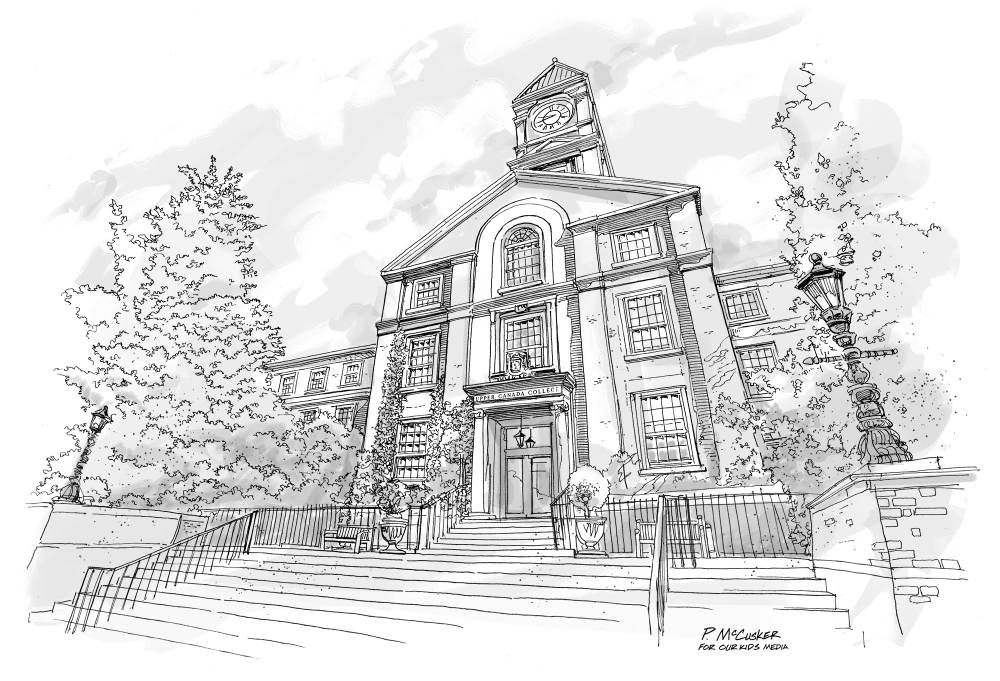

How we see Upper Canada College
The 50-page review of Upper Canada College is part of our series of in-depth accounts of Canada's leading private schools. It provides a unique and objective perspective on the school's academics, programs, culture, and community.
Read our in-depth reviewCompare with:
How Upper Canada College sees itself
"Upper Canada College is where tradition, excellence and innovation meet. An IB World School, UCC delivers transformational learning experiences built upon a rigorous academic program and unparalleled co-curricular opportunities. Expert faculty, cutting-edge facilities and a best-in-class financial assistance program enable students to find their passions and realize their potential. Our graduates become leaders in a world that requires global-mindedness, critical thinking and commitment to service."
"UCC delivers transformational programs grounded in a liberal arts education through experiential learning in state-of-the-art facilities, such as our new design labs equipped with the latest technology; our hockey arena with two world-class ice pads; and our 535-acre outdoor campus at the Norval School that teaches students about ecosystems, math and environmental stewardship while engaging with the natural world. Combined with our rigorous IB program, graduates leave UCC prepared to succeed."
"Families know that sending their students to UCC will give them the competitive advantage of the International Baccalaureate, while encouraging creativity and fuelling curiosity. UCC provides students with a well-rounded education that balances academics and a wide range of co-curricular offerings. Parents appreciate the focus on wellbeing — teaching students how to take care of their physical, mental and academic selves, with an emphasis on community and service."
"Founded in 1829, a UCC education supports a diverse and well-rounded student experience. Hosting more than 80 co-curricular activities and sports, UCC’s offerings include options not available at other institutions, including Model UN, cricket, softball, squash and rowing. Our students take advantage of six outdoor sports fields, a hockey arena with two ice pads — one NHL-sized and one Olympic — and a swimming pool for programming, practice and play."
"With a strong commitment to representing socio-economic breadth, UCC offers the most generous financial assistance program in Canadian independent schools. One in five UCC students receives financial assistance each year, making an exceptional education more accessible. Families are also often surprised at the size of the campus. Located in the heart of Toronto, the College sits on 35 lush acres, creating a sanctuary in Canada’s largest city for students to learn and grow."
Upper Canada College operates summer camps and programs. Click here to learn about UCC Summer Camps .
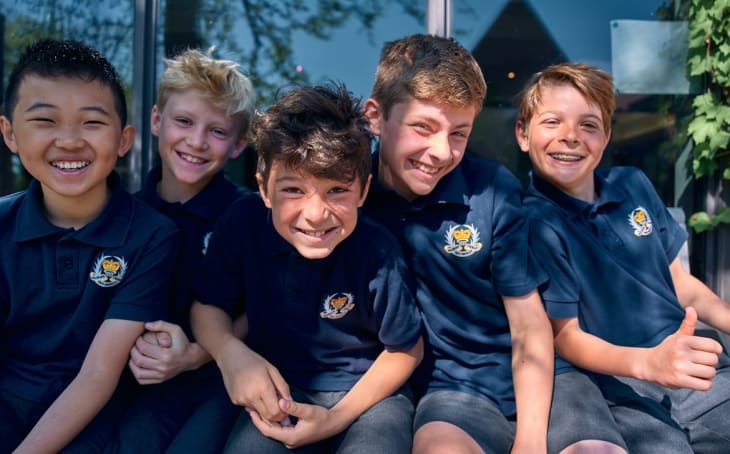

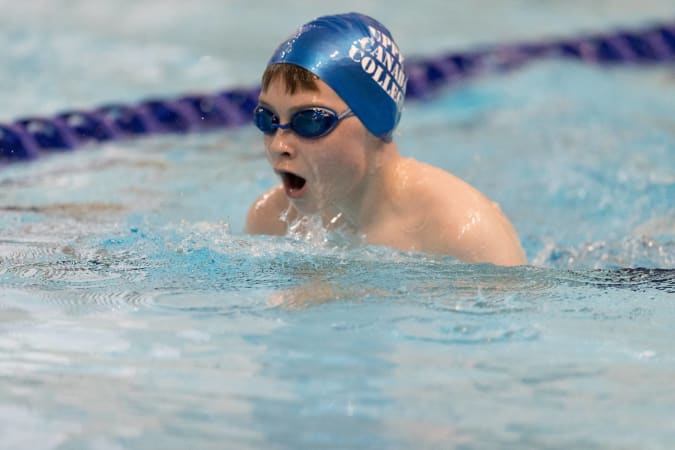
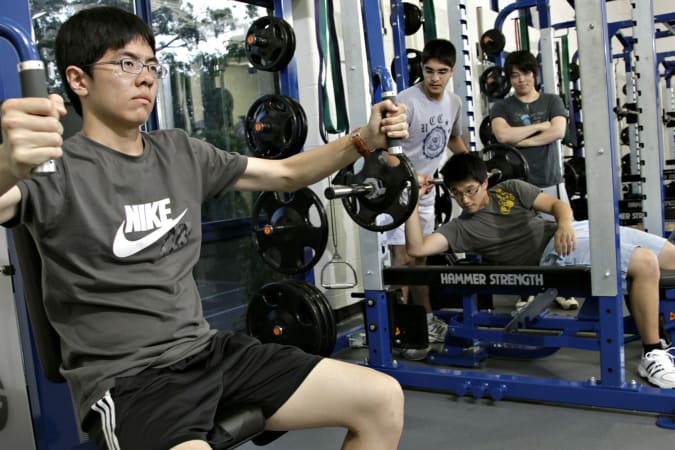






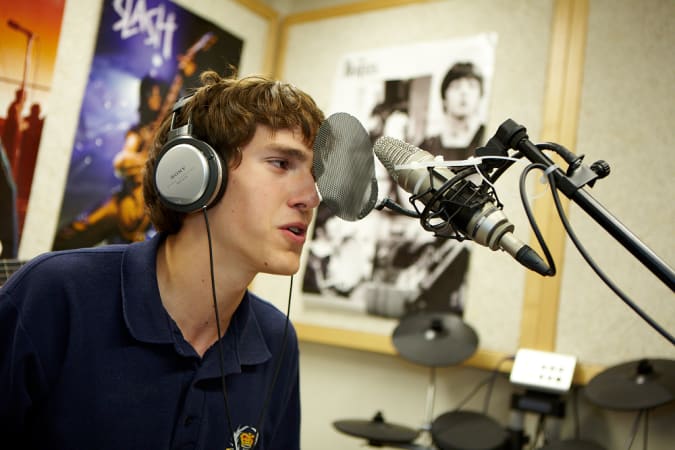



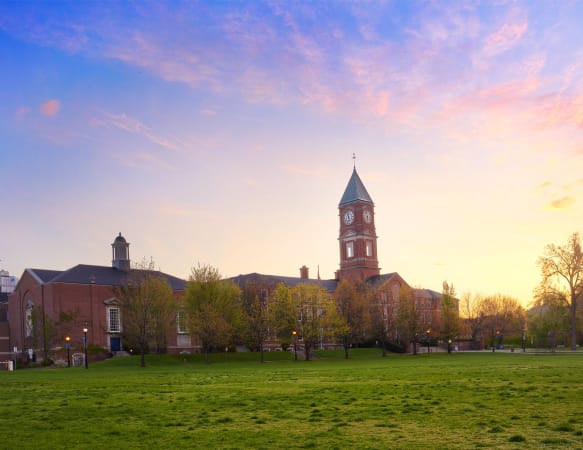
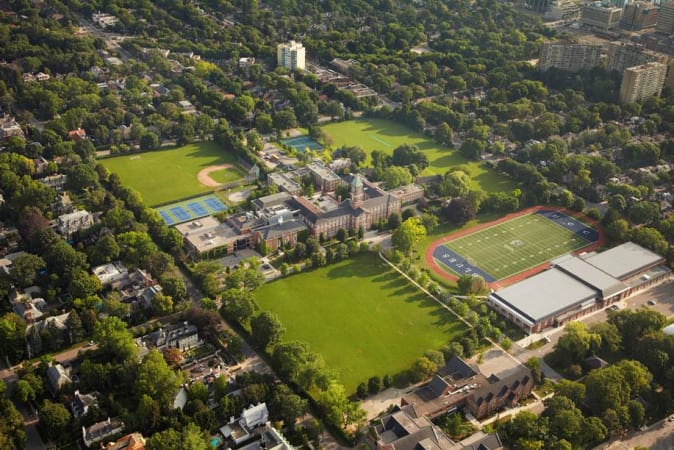




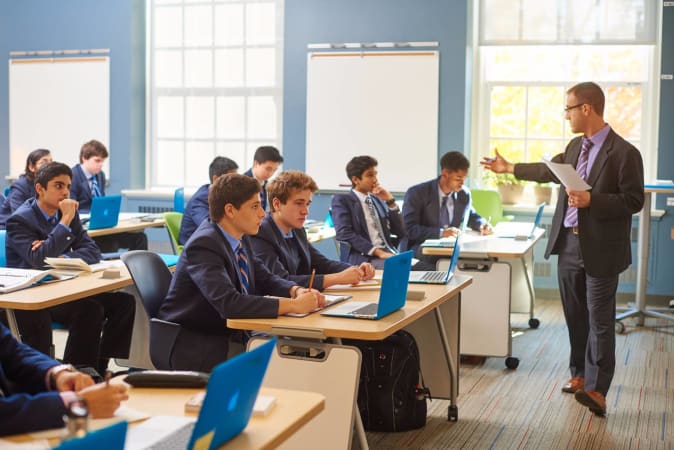
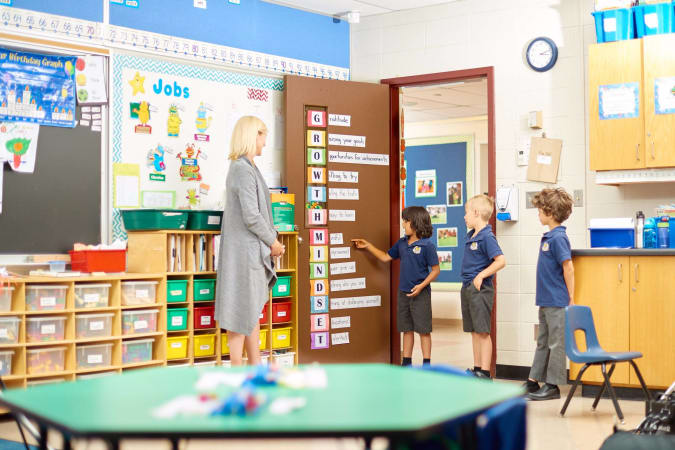




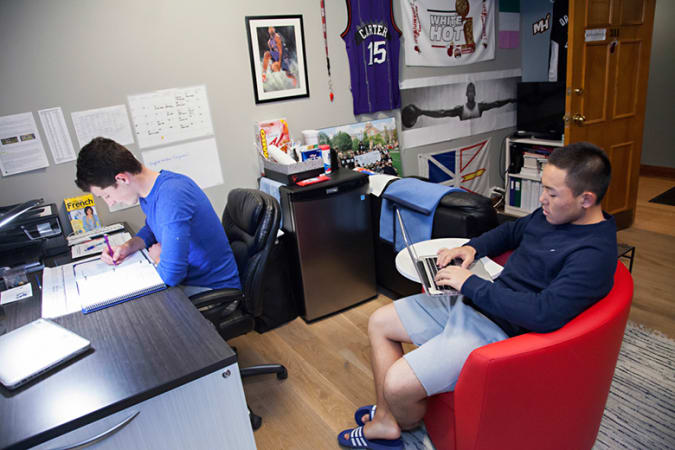
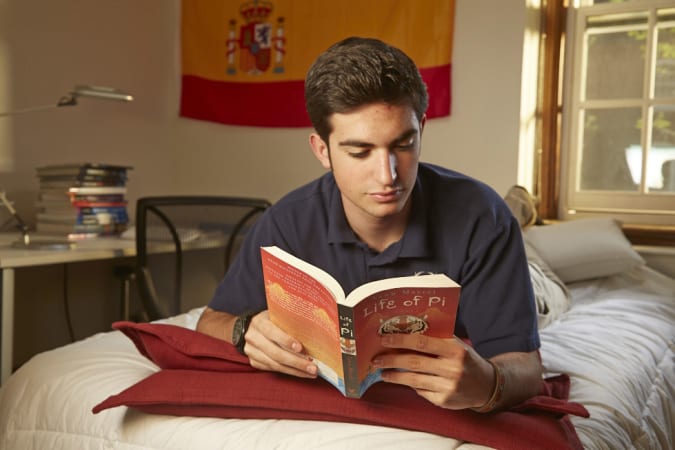
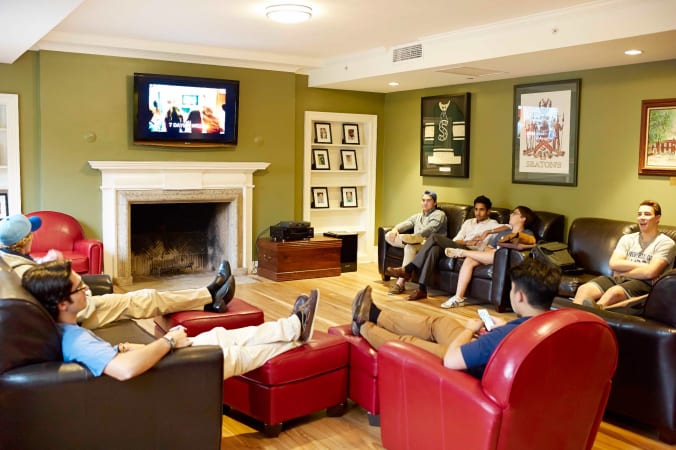





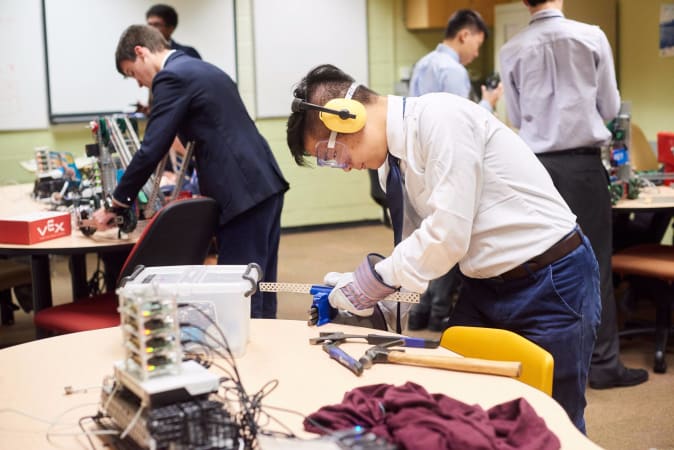




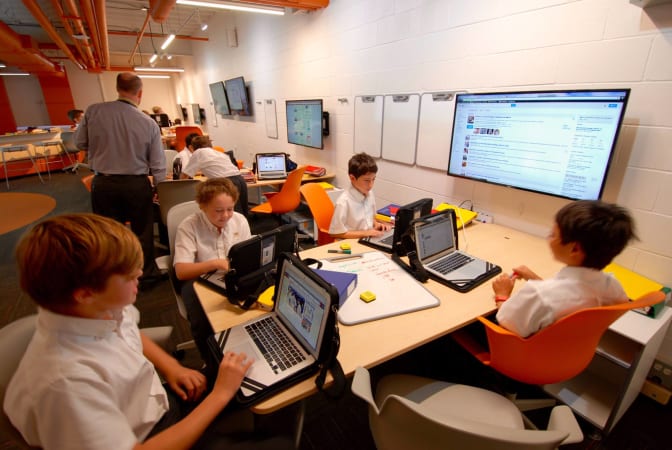
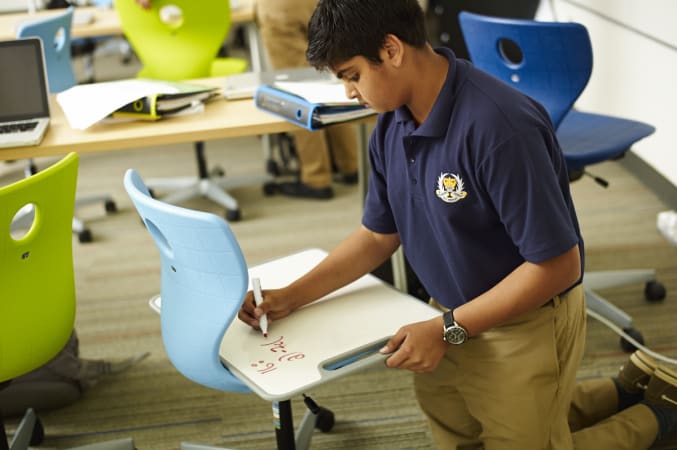



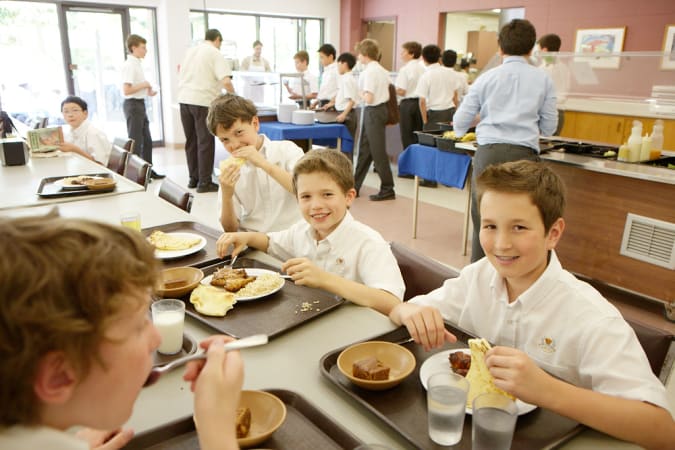

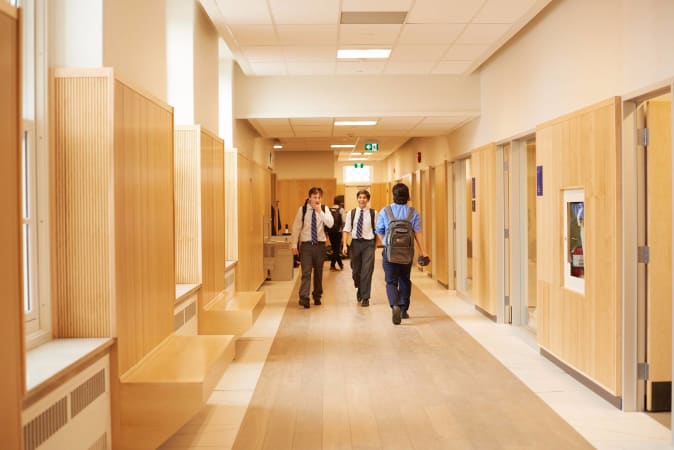





How people from the school’s community see Upper Canada College
Top-down influence on the school’s direction and tone
Sam McKinney, Principal
BA, Carleton University / MEd, Edith Cowan University (Western Australia)
Samuel James McKinney is the 19th principal of Upper Canada College and began his tenure on July 1, 2016.
Principal McKinney was formerly the deputy headmaster and head of senior school at St. Peter’s College in Adelaide, South Australia. “Saints,” as it is known in Australia, is a 168-year-old boys’ school that has produced 42 Rhodes Scholars and three Nobel Laureates. With a student population of more than 1,400 boys, including 90 boarders, Saints offers both the IB Diploma and the South Australian Certificate of Education.
The son of schoolteachers, Principal McKinney was born and raised in the Niagara region and attended St. Catharines Collegiate before receiving his bachelor of arts from Carleton University in Ottawa in 1990. He furthered his education in Australia, receiving a graduate diploma in education from the University of Adelaide in 1993 and a master’s of education from Edith Cowan University in Western Australia in 2003. More recently, he has undertaken study at the Harvard University Graduate School of Education Principals’ Centre and resilience training through the University of Pennsylvania Positive Psychology Centre.
In appointing Principal McKinney, UCC is also welcoming his wife, Rose, and their three boys, Jack ’17, Connor ’19 and Charles ’20. Also a teacher, Rose has taught in the Junior and Middle schools at Pulteney Grammar School in Adelaide since 2007.
Message from Principal McKinney:
From our founding in 1829, Upper Canada College has been educating the next generation of leaders and innovators, inspiring them to make a positive impact on their world. In our nearly 200-year history, the school has undergone incredible transformation. Alongside the historical landmarks many associate with UCC — the ivy-covered walls, iron front gates, majestic clock tower — stand modern facilities and adaptable learning spaces equipped with the latest technology.
Our approach to boys’ education has similarly evolved. The College’s foundational focus on a liberal education is now delivered through the International Baccalaureate (IB) Programmes, globally recognized as the gold standard for university preparatory programs. In addition, our commitment to needs-based financial assistance has expanded substantially, offering more than $5 million annually to boys of the highest potential, enabling a diverse learning community that reflects our city and nation.
These innovations have shaped what is only a part of the UCC difference. We are not just about academic heights reached, championships won, or brilliant theatrical performances — although these are integral to what makes the College the outstanding place it is. What’s equally important is how our boys take forward the transformational learning experiences that are a hallmark of a UCC education.
Grounded in our vision to inspire boys to be their best selves is our commitment to fostering a vibrant school community that reflects the pluralism and promise of Canada. We offer an extraordinary range of opportunities for growth and discovery, as well as the support needed for boys to thrive among a network of dedicated faculty and staff, and lifelong friends.
I encourage you to learn more here, then visit us and experience the UCC difference.
We look forward to welcoming you.
THE OUR KIDS REPORT: Upper Canada College
Next steps to continue your research:
Continue researching Upper Canada College with OurKids.net, or visit school website.
